Fact: Hashimoto’s is the number 1 cause of hypothyroidism in the United States (and in many developed nations).
You would think that because it’s so common there must be a large range of treatments for this condition, right?
You would think so but that isn’t the case.
In fact, there is really only 1 treatment that doctors can provide:
Levothyroxine (or other thyroid medication).
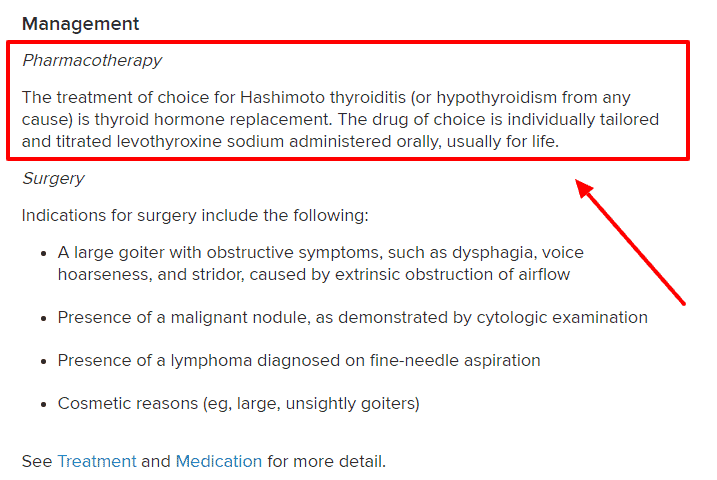
And doctors only give out this medication when your thyroid function falls to a certain level.
Patients with Hashimoto’s are told to “sit and wait” until this occurs.
But what if there were other options available? What if there were things that you could do to help prevent the progression of your disease?
Would you use those treatments or therapies?
If you are like most patients with Hashimoto’s then you would at least consider them.
After all, considering natural treatments is far better than doing nothing at all while your own immune system permanently destroys your thyroid gland.
If you were to ask a doctor if these other therapies worked you would get mixed signals.
Some might say that they are somewhat effective while others would say that they have no impact on your disease at all.
The truth is that many patients with Hashimoto’s have been through the same set of symptoms that you have and they are doing something about it.
Some of these patients are even able to put their Hashimoto’s into remission.
Let’s talk more about the idea of curing Hashimoto’s.
Today you will learn:
- Whether or not it’s possible to cure Hashimoto’s
- The difference between putting Hashimoto’s into remission and curing Hashimoto’s
- Why your conventional doctor will not recommend natural treatments that can actually help you feel better
- A list of natural treatments that have worked for other patients with Hashimoto’s
- Why there aren’t any good medical treatments for Hashimoto’s aside from levothyroxine
- And much more
Let’s jump in…
DOWNLOAD FREE RESOURCES
Foods to Avoid if you Have Thyroid Problems:
I’ve found that these 10 foods cause the most problems for thyroid patients. Learn which foods you should avoid if you have thyroid disease of any type.
The Complete List of Thyroid Lab tests:
The list includes optimal ranges, normal ranges, and the complete list of tests you need to diagnose and manage thyroid disease correctly!
Hashimoto’s and Thyroid Dysfunction
If you’re newly diagnosed with Hashimoto’s then we need to talk about some basics of thyroid disease and thyroid dysfunction.
Even though this information may seem elementary, it’s actually really important.
If you understand the basic underlying physiology of what is happening in your body if you have Hashimoto’s, then you will understand why there really are things that you can do to help fix the issue.
For starters, Hashimoto’s thyroiditis is considered an autoimmune disease of your thyroid gland.
What does that mean?
It means that your own body is creating antibodies that are attacking your own thyroid gland.
This process is what leads to all of the problems associated with Hashimoto’s.
As your own immune system slowly attacks and destroys your thyroid gland you will develop low thyroid or hypothyroidism.
This exact process can occur in other areas of your body and when it does it results in the following diseases:
- Auto destruction of your joints is known as rheumatoid arthritis (1).
- Auto destruction of your nerves is known as multiple sclerosis (2).
- Auto destruction of your adrenal glands is known as Addison’s disease (3).
- Auto destruction of your gut lining from gluten is known as Celiac disease (4).
- Auto destruction of melanin in your skin is known as vitiligo (5)
And so on.
In the case of Hashimoto’s, if this process is not slowed down or halted then it will ultimately lead to permanent destruction (6) of your thyroid gland.
The picture below shows exactly what happens to the thyroid gland in end-stage Hashimoto’s:
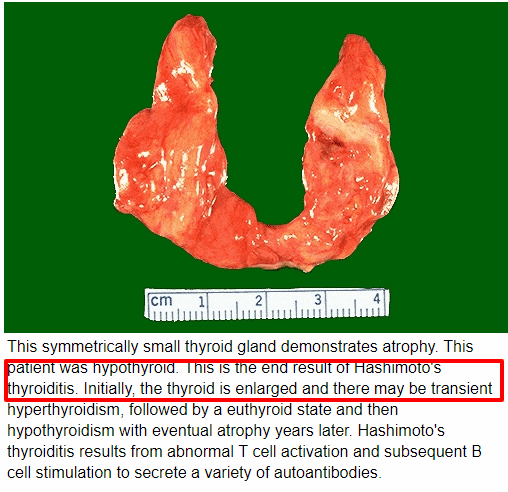
This is in stark contrast to the healthy thyroid gland which looks nothing like that picture.
What’s important to understand here is that these problems are all mediated by your own immune system!
As a result, if you can balance or stop your immune system from attacking your own body then you can stop or halt your disease from progressing.
This applies 100% to those with Hashimoto’s thyroiditis.
Unfortunately, even though this is the case, and it is well known among doctors, treatment for Hashimoto’s does NOT focus on the immune system.
Instead, it focuses 100% on thyroid function.
Don’t get me wrong, thyroid function is still very important.
After all, as thyroid function declines you will start to experience symptoms like hair loss, fatigue, weight gain, constipation, and other symptoms of hypothyroidism.
When your doctor gives you thyroid medication, he or she is trying to resolve those symptoms.
But what good does resolving those symptoms do if you continue to slowly destroy your own thyroid gland in the process?
You are ignoring the root cause of the problem and slapping a Band-Aid on the symptoms without actually treating the underlying issue.
There’s no disputing that this happens, by the way, it’s just simple physiology.
If you were to ask your doctor what will happen, they would tell you the exact same thing I did here.
Once you understand this, you might think that your doctor is being negligent but that isn’t exactly the case.
The problem is not your doctor per se but how doctors approach treating autoimmune disease in general, especially Hashimoto’s thyroiditis.
For some of the autoimmune diseases that I listed above, doctors frequently use immunosuppressant medications to slow down the immune system from destroying portions of your own body.
Immunosuppressant prescription medications such as corticosteroids (7), biologics (8), calcineurin inhibitors (9), IMDH inhibitors, Janus kinase inhibitors, mTOR inhibitors, and monoclonal antibodies (10) are prescription medications used to treat various autoimmune diseases.
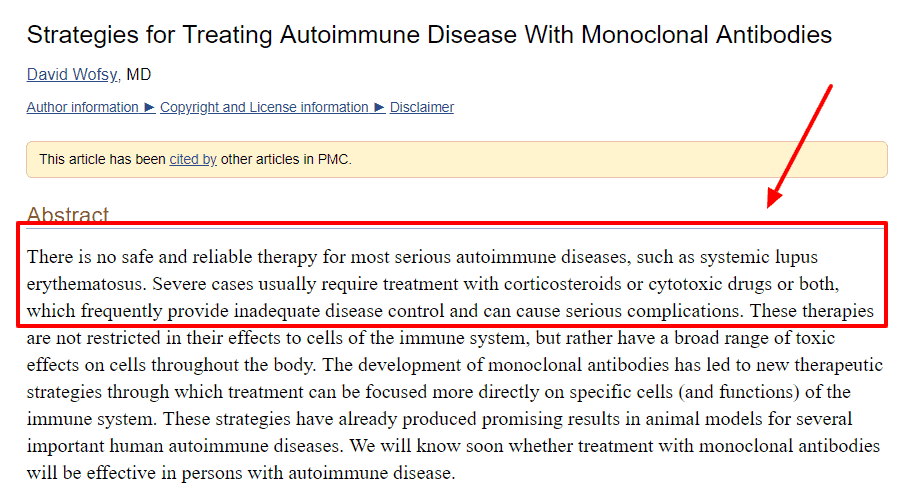
But these medications are rarely if ever used to treat Hashimoto’s thyroiditis.
So what gives?
As I mentioned, it’s all about how doctors think about Hashimoto’s thyroiditis.
Put simply, the side effects of those medications are not worth the risk to the patient because replacing lost thyroid hormone is much easier.
As a result, doctors will only ever prescribe thyroid medications and not immunosuppressants.
But where does that leave you as a patient?
Are you forced to let your own thyroid gland destroy itself over the next 10 to 20 years?
Are you forced to have to take thyroid medication for the rest of your life?
Not at all!
It turns out that there are many other treatments and things that you can do to at least slow down, if not prevent, these complications from occurring.
Curing Hashimoto’s vs Putting Hashimoto’s Into Remission
Before we talk about treatments for Hashimoto’s we need to discuss the end goal.
If you were to ask your doctor if Hashimoto’s is curable then the answer would probably be no.
But you don’t necessarily have to focus on “curing” Hashimoto’s to be successful.
Instead, focus on putting your Hashimoto’s into remission (11).
Remission is a word used to describe a disease state that is under control or well-managed.
What does remission look like for someone with Hashimoto’s?

It’s simple actually.
Putting Hashimoto’s into remission means that your thyroid antibody levels are at a healthy or normal level and that you are not experiencing the symptoms associated with Hashimoto’s or thyroid dysfunction.
In other words, you feel fine and your labs look great!
This should always be the goal when treating Hashimoto’s.
You might consider this a “cured” state but that’s not entirely true.
The truth is that once you have a diagnosis of Hashimoto’s, your body will forever be in a state that makes it more likely to come back or recur.
So the word remission actually makes more sense here.
Even those patients who have Hashimoto’s in remission may still experience flare-ups.
Hashimoto’s flare-ups are periods of time when your immune system gets dysregulated and causes a brief uptick in your thyroid antibodies and a return of your symptoms.
Flare-ups can be triggered by many things including infections, nutrient deficiencies, exposure to heavy metals, food allergies, gut dysfunction, and so on.
You can see a full list of triggers here.
For the reasons listed above, it’s best to think about Hashimoto’s as a disease that can be managed as opposed to being cured.
This sort of language will also go over better with your doctor when you are discussing your health.
When you talk about “curing” an autoimmune disease your doctor may think that your goal is outlandish or unattainable.
But if you talk about trying to lower your antibodies and reduce your symptoms to a non-detectable level, they will be more likely to want to help.
Do Natural Treatments for Hashimoto’s Actually Work?
This all sounds great, but do these natural treatments actually work?
Will they actually help you to reduce your thyroid antibodies and put your Hashimoto’s into remission?
The answer is maybe, possibly, and sometimes.
That may not be what you want to hear but it is the truth!
I’ve had the advantage of working with hundreds of people who have Hashimoto’s and I’ve seen responses to treatments that vary dramatically.
I’ve seen some people put their Hashimoto’s into remission just by taking a few supplements and cutting out dairy or gluten.
On the other hand, I’ve seen some patients who require intensive medications, hormones, dietary restrictions, and additional therapies just to keep their symptoms in check.
Regardless of how you react to treatments, I can tell you one thing:
It will be worth it.
Why do I say that?
Because there’s almost never a situation in which eating cleaner foods, exercising more regularly, ensuring that you get enough sleep, or managing your stress is ever harmful to your body!
In other words, the risks vs rewards of these treatments are so lopsided (to the positive side) that they should be attempted by almost every person.
There’s more to it than that, but this gives you a basic idea as to why these treatments can be helpful.
Is there another explanation as to why these treatments don’t always work the same in each person?
It turns out there is and the reason is simple:
Because no two patients with Hashimoto’s are exactly alike.
In other words, what triggered your Hashimoto’s may be different from the next person’s (12).
And this trigger will absolutely impact how effective certain treatments will be for you!
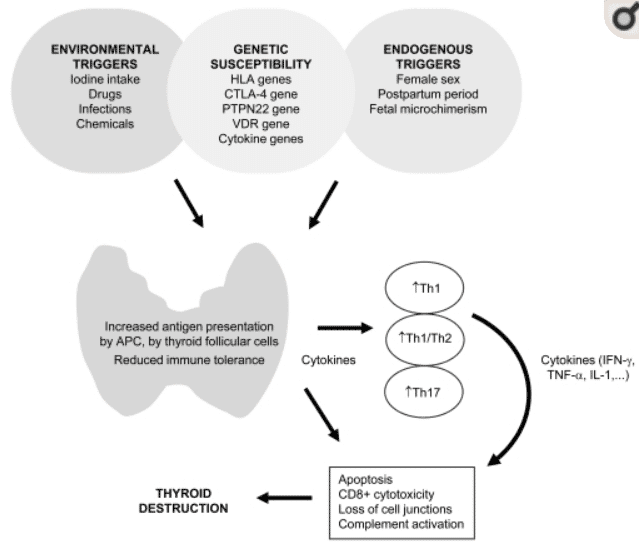
In addition to this, the severity of the disease also varies from person to person.
In other words, two people may have Hashimoto’s but the disease can be significantly more severe in one person compared to the other.
All of these factors influence how likely it will be for you to put your Hashimoto’s into remission.
Combining Natural Treatments and Medications to Treat Hashimoto’s Thyroiditis
With all of this in mind, let’s talk about treatments!
If you really want to be successful in treating your Hashimoto’s then you are going to need to take what I call a multi-faceted approach.
This means you will need to use more than one treatment or therapy at the same time.
This is in stark contrast to the idea of a silver bullet.
A silver bullet represents a single action or treatment that solves all of your problems.
Unfortunately, no such thing exists for Hashimoto’s.
Instead, you will need to take advantage of many natural therapies all at once.
What I’ve done below is create a list of various treatments that I have either personally used to treat patients with Hashimoto’s or have seen success from other patients who have Hashimoto’s.
These natural therapies are not guaranteed to work for you just because they have worked for others but there’s a good chance that they will at least provide some improvement to your condition.
List of natural therapies that MAY work to put your Hashimoto’s into remission:
- Changing your diet – There are many different types of diets that can help those with Hashimoto’s including diets like AIP, the ketogenic diet, the carnivore diet, the elimination diet, and the gluten-free diet. There are many other diets that you can consider as well.
- Targeting and treating your gut – Treating your gut will impact the rest of your body including both your thyroid and immune system. Common gut disorders found in Hashimoto’s patients include SIBO, SIFO, GERD, low stomach acid (13), intestinal dysbiosis, H. pylori, autoimmune gastritis (14), and gastroparesis. Treating gut issues will go a long way to improving your overall health.
- Using certain supplements – Supplements have the potential to help patients with Hashimoto’s and some of my favorites include pycnogenol, CBD, Vitamin D3, magnesium, zinc, selenium, glutathione, Rhodiola, and thyroid/adrenal glandulars. There are obviously many others and if you want to see a bigger list check out this article.
- Using different thyroid medications – Most patients with Hashimoto’s do better on cleaner thyroid medications that also contain T3. Some medications in this group include Cytomel, liothyronine, compounded T4 and T3, NDT, and Tirosint. While not technically a “natural” treatment your thyroid medication is still important and will impact how you feel!
- Improving detoxification pathways inside of the body – Many patients with Hashimoto’s see significant improvement in their condition when they focus on optimizing detoxification pathways inside of the body. You can easily do this by ensuring you are sweating enough, having proper bowel movements, and urinating regularly.
- Using off-label prescription medications – Some off-label prescriptions such as low-dose naltrexone have been shown to help reduce inflammation (15) and improve thyroid antibody levels.
- Taking bio-identical hormones – One of my favorites here is the use of bio-identical testosterone in women and men with Hashimoto’s who have low testosterone. You can take extra testosterone which may improve the immune system and provide additional benefits to boot.
- Treating chronic viral infections – Some patients see a lot of improvement in Hashimoto’s symptoms when treating chronic infections such as EBV.
- Make sure you get enough sleep – Sleeping ensures that your immune system and hormones are working properly! You should get at least 8 hours of sleep each night.
- Practicing stress reduction techniques – There are many ways to do this but one of my favorites is regular meditation. If you’ve never meditated before then start with something like the release method or with the kirtan kriya.
- Exercising regularly – Regular exercise can improve free thyroid hormone levels and may reduce inflammation! It’s also been shown to balance TSH levels.
- Eliminating foods that you may be intolerant to – Removing foods that may cause inflammation in your body can be an important part of treating Hashimoto’s. Spending some time to find these foods can be difficult but will be well worth it.
- Using essential oils – Lastly, there are some people who swear by essential oils. I’ve seen some success in using essential oils when managing stress, reducing cortisol, and improving gut health.
Believe it or not, these are just some of the natural treatments that can be used to help put Hashimoto’s into remission.
The only problem?
You may never even hear about them unless your doctor is aware of them!
This leads us to the next topic…
What Type of Doctor Should You See? Conventional Doctors vs Integrative Doctors
This is why so many patients tend to look for Doctors who think outside of the box.
They know what they are getting with conventional medicine and they would rather do something (anything) instead of waiting for the inevitable destruction of their thyroid gland.
While alternative and natural medicine can certainly be helpful, the push towards this type of medicine has opened the door to less-than-savory practices.
Some doctors have noticed this trend and have attempted to capitalize on the fact that patients are searching for a cure by claiming they have special inside information or secret therapies that don’t exist elsewhere.
Obviously, they do not and this is just a marketing tactic to get your money.
This is exactly why conventional doctors tend to distrust any type of medicine that isn’t considered conventional.
If anyone can write a blog post and exclaim that they know the ‘secret’ to treating Hashimoto’s, what is there to stop them from doing just that?
The answer is nothing.
As a result, there are many providers and practitioners that claim to have therapies that may seem too good to be true.
But just because this does exist (and it absolutely does), doesn’t mean you should be distrusting of all non-conventional doctors.
In fact, in my opinion, the best doctors are the ones that have one foot planted in conventional medicine and the other planted in the world of integrative or functional medicine.
By placing their feet on both sides they can take advantage of lots of different therapies and treatments including medications, hormones, supplements, diets, natural treatments, and so on.
Practitioners that tend to swing to one side or the other tend to miss the bigger picture.
A picture where Eastern and Western medicine can live together and work together in a complementary way to the benefit of the patient.
When it comes to considering natural treatments and therapies consider these questions:
Is the treatment or therapy you are looking at incredibly expensive?
Does the therapy or treatment sound too good to be true?
Is it risky from a health perspective?
If the answer to any of these questions is yes then you may want to reconsider it!
If you are trying to find a list of doctors who tend to use a combination of both Eastern and Western medicine then these are best:
- Doctors who specialize in functional medicine
- Doctors who specialize in integrative medicine
- Doctors who specialize in anti-aging medicine
- Doctors who specialize in bio-identical hormone replacement therapy
These types of doctors will give you the best shot if you are trying to put your Hashimoto’s into remission.
Remission Should Always Be Your Goal
The main takeaway I want to leave you with is the fact that Hashimoto’s thyroiditis is a potentially reversible condition.
If you have been diagnosed with this condition then you owe it to yourself to look at all of the options available to you and at least consider using natural therapies.
Why?
Because the risk vs reward ratio is so high on the positive side.
Changing your diet, exercising more regularly, using supplements, optimizing your gut function, and balancing your hormones will almost always provide at least some benefit to your condition if not to your overall health.
If you opt to try out natural therapies then you want to be sure that you stay clear of therapies with promises that sound too good to be true, stay away from providers who want thousands of dollars upfront, and stay away from therapies that are not proven to be effective, and from therapies which are potentially dangerous.
If you stick to these recommendations then you should be able to navigate the integrative world without damaging your health and your bank account.
If you need help finding a doctor then make sure to check out this resource.
Now I want to hear from you:
Have you been diagnosed with Hashimoto’s thyroiditis?
Did you know that Hashimoto’s could be put into remission?
What type of doctor are you currently seeing? Are they helping you?
Are you looking at natural therapies right now?
Have you been able to reverse your condition? Why or why not?
Leave your comments or questions below!
Scientific References
#3. https://www.ncbi.nlm.nih.gov/pubmed/23177474
#4. https://www.ncbi.nlm.nih.gov/pmc/articles/PMC5437500/
#5. https://www.ncbi.nlm.nih.gov/pmc/articles/PMC5362109/
#6. https://library.med.utah.edu/WebPath/ENDOHTML/ENDO016.html
#7. https://www.nps.org.au/australian-prescriber/articles/corticosteroids-in-autoimmune-diseases
#8. https://www.jacionline.org/article/S0091-6749(15)01580-8/fulltext
#9. https://www.ncbi.nlm.nih.gov/books/NBK558995/
#10. https://www.ncbi.nlm.nih.gov/pmc/articles/PMC1306490/
#11. https://www.ncbi.nlm.nih.gov/pmc/articles/PMC3523489/
#12. https://www.ncbi.nlm.nih.gov/pmc/articles/PMC3271310/
#13. https://pubmed.ncbi.nlm.nih.gov/20351569/
#14. https://www.ncbi.nlm.nih.gov/pmc/articles/PMC5405068/
#15. https://www.ncbi.nlm.nih.gov/pmc/articles/PMC3962576/
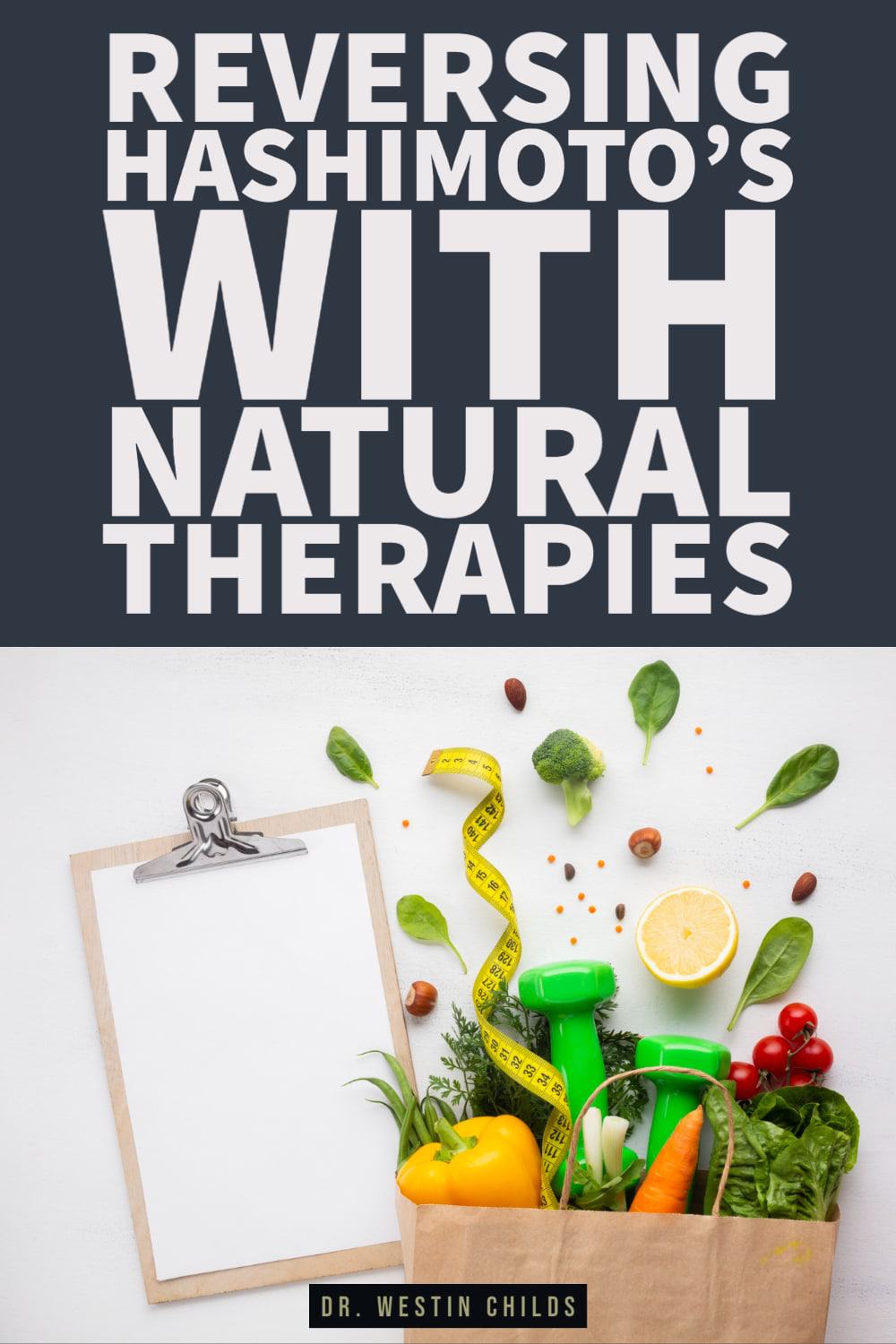
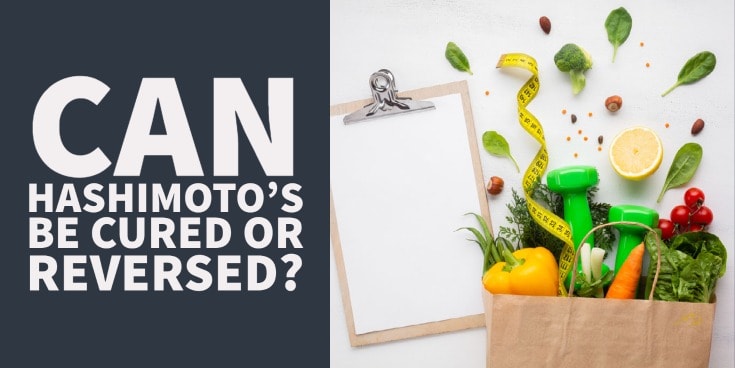

Leave a Reply